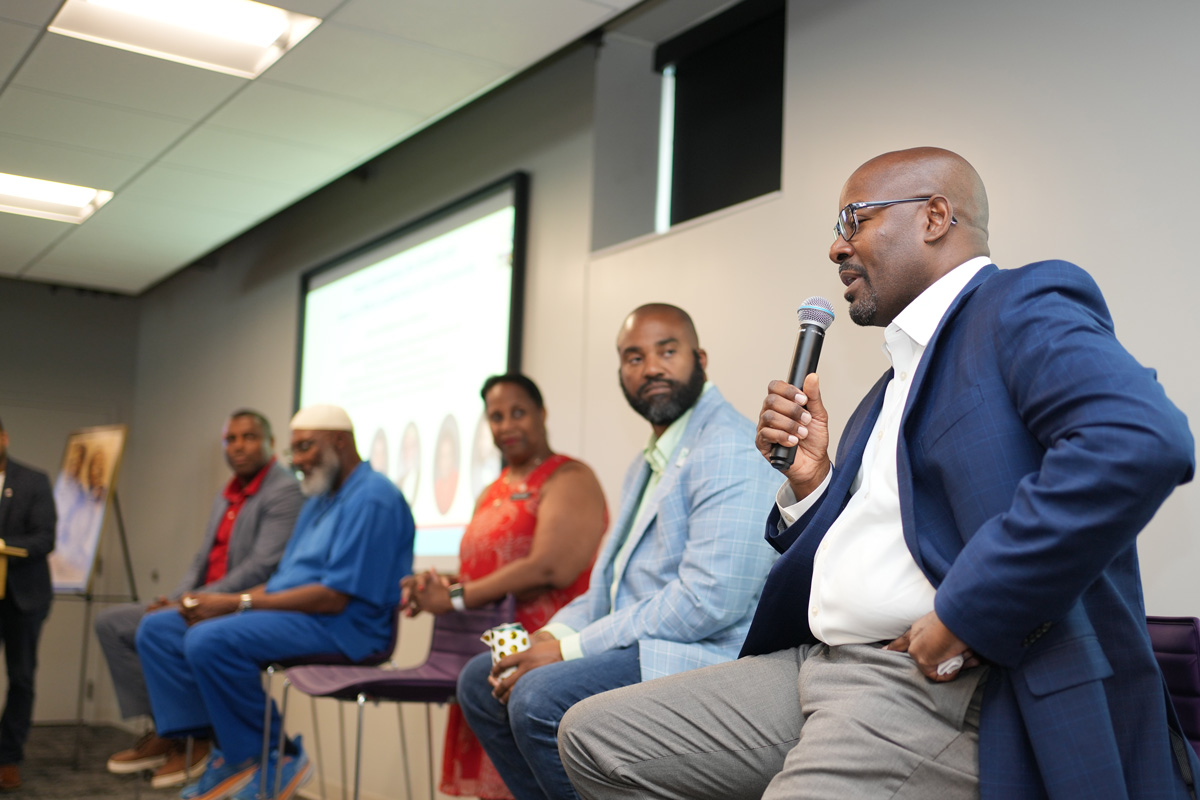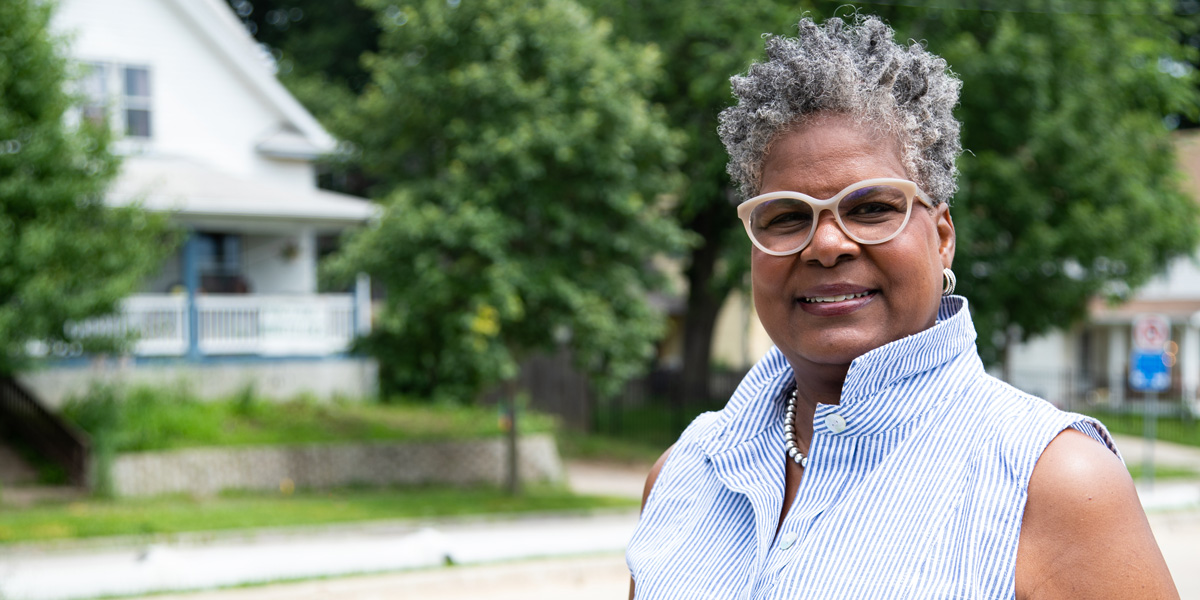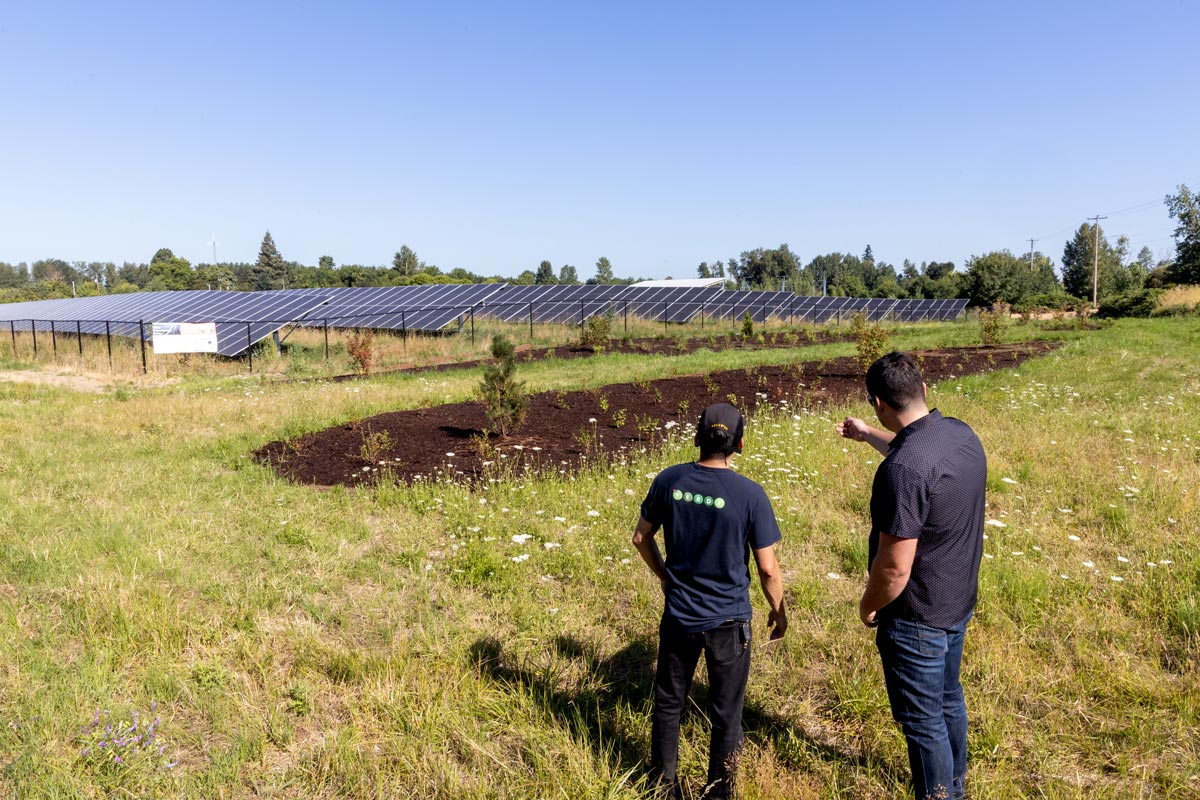“Representation matters. . . . It is important for us to understand that when voices are not heard, someone is being silenced.”
Teree Caldwell-Johnson
Former Board Chair, TDC
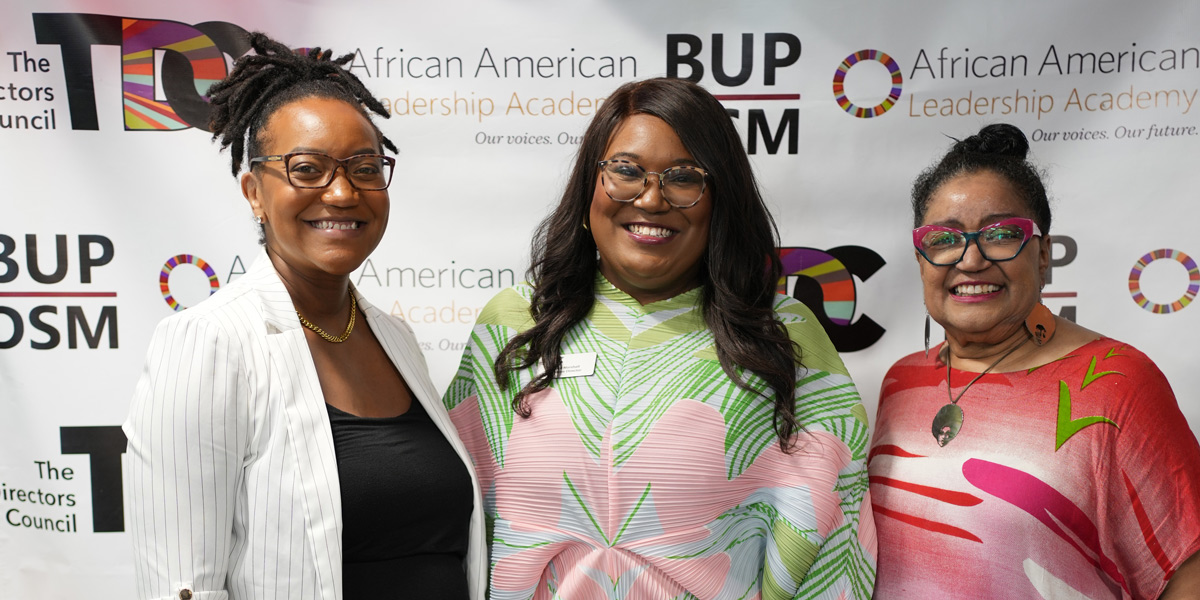
TDC executive director Jerrica Marshall (center) is joined by AALA alumni chair Lindsey Lovelace (left) and One Economy health strategic implementation team chair Jacquie Easley McGhee (right) at TDC’s 20th anniversary celebration. Photo courtesy of TDC.
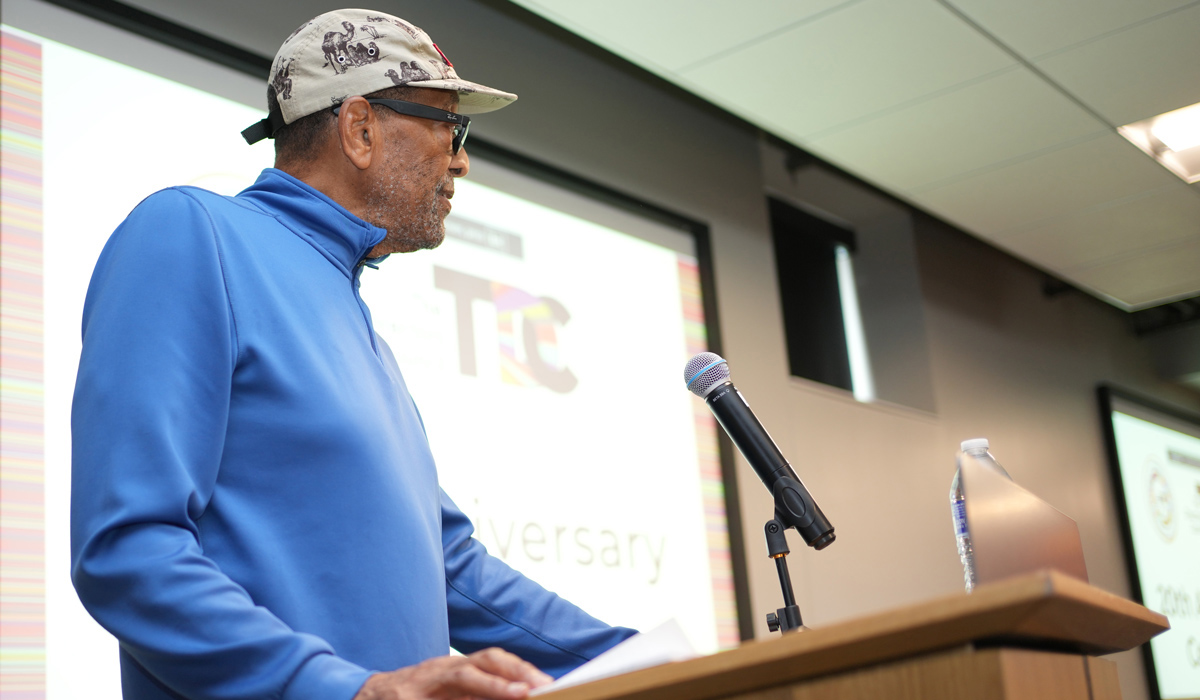
Founding member Vernon Johnson shared a few words as he and late board chair Teree Caldwell-Johnson were honored at TDC’s 20th anniversary celebration. Photo courtesy of TDC.
1. Source: US Census, 2020 / One Economy, 2020
2. Source: US Small Business Administration, 2022

